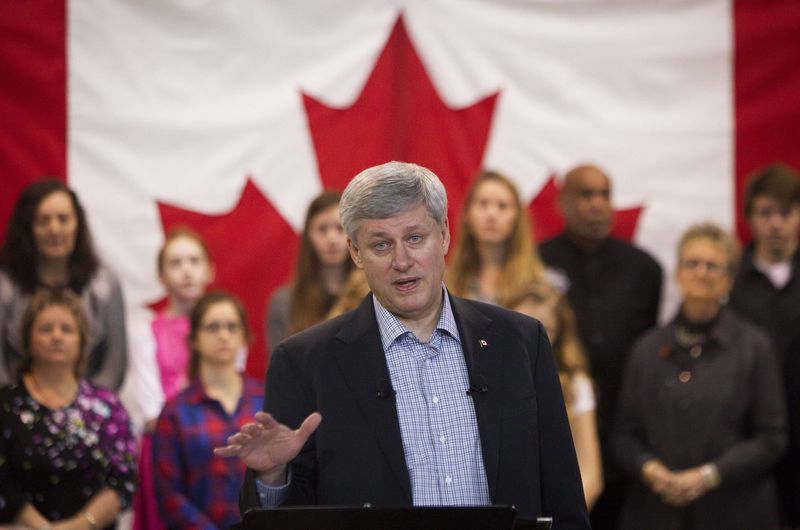By Leah Schnurr
OTTAWA, July 24 (Reuters) - Canada's Conservative government
may have tied its own hands by launching anti-deficit
legislation just as the global oil price shock was pushing the
country to the edge of recession.
What had seemed like a prudent measure now means Prime
Minister Stephen Harper has less room to maneuver just months
from an election, even if he wanted to.
Final data has not been published, but the economy likely
shrank in the first two quarters of 2015, sparking calls by some
for fiscal stimulus.
Mostafa Askari, assistant Parliamentary Budget Officer, said
the law doesn't appear to allow for the government to respond to
slow growth outside of a recession.
"In those cases, one would expect that the government should
have the flexibility to respond to that and run a deficit,"
Askari said.
Harper, who forecast a balanced budget for 2015-16 following
years of deficit, has said he will not risk that hard-won
balance, betting fiscal prudence will help him win re-election
in October. Harper's Conservatives are trailing in the polls to
the left-leaning opposition.
Harper repeated that target on Friday, two days after a
Parliamentary watchdog forecast the country would run a deficit
this fiscal year. ID:nL1N1021C7 ID:nO8N0TI01N
The finance minister's spokesman said the latest budget
included room to account for global weakness.
The new law lets governments run deficits during recessions
or extraordinary situation, but it imposes consequences.
Operating spending and salaries for ministers and some
bureaucrats are frozen after the economic recovery begins.
If a deficit is run in normal times, operating budgets would
be frozen immediately and ministers would see their salaries cut
5 percent.
Still, Askari said a government that projected a surplus
could slip into deficit during the year and not trigger
consequences, as long as the books are balanced when it releases
its next budget. The recession can also have occurred, be
occurring or forecast at the time the budget is tabled,
according to the legislation.
The legislation can also be changed or suspended by
Parliament. Many Canadian provinces were forced to suspend their
balanced budget legislation following the financial crisis.
But politics may trump economics, said University of
Manitoba professor Wayne Simpson, who has studied provincial
balanced budget legislation.
"Bad economic policy never inhibited what people consider
good politics," said Simpson. "It's a popular thing to indicate
that you're serious about being financially responsible ... and
balanced budget legislation seems a way of sending that
(signal)."
(Editing by Jeffrey Hodgson and James Dalgleish)
